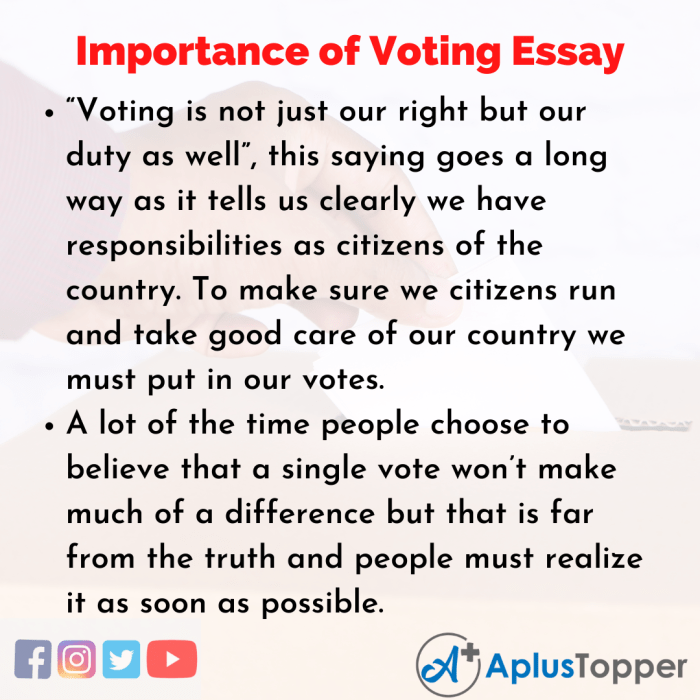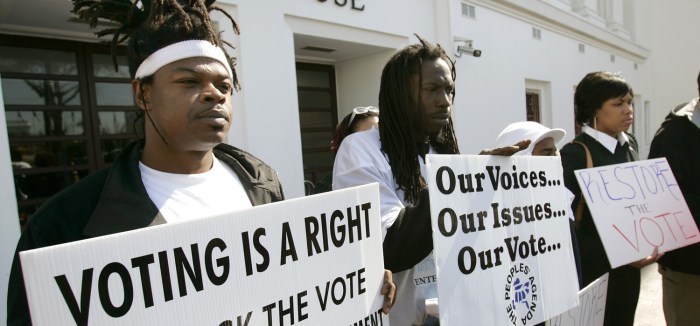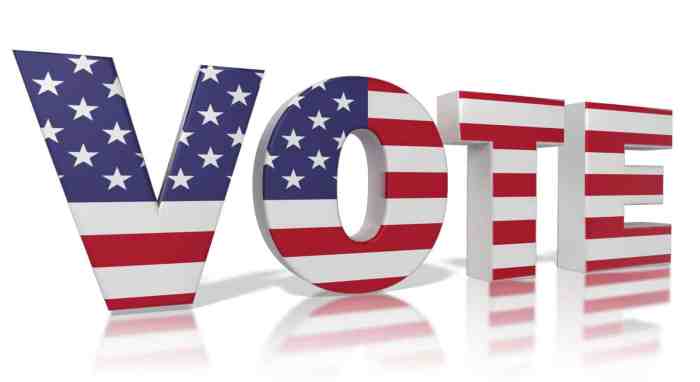Why should felons be allowed to vote essay – As the debate over why felons should be allowed to vote essay intensifies, this opening passage invites readers into a realm of informed discourse. The topic, brimming with historical, social, and legal implications, demands a thorough examination that considers diverse perspectives and evidence-based arguments.
The following paragraphs will delve into the historical evolution of felon disenfranchisement in the United States, exploring its legal underpinnings and the profound impact it has on individuals and communities. We will then analyze the arguments both for and against restoring voting rights to felons, weighing the potential benefits and concerns associated with such a policy.
Historical and Legal Context

Felon disenfranchisement in the United States has a long and complex history. The practice of depriving convicted felons of their voting rights dates back to the colonial era, when it was used as a way to control the political power of freed slaves and other marginalized groups.
The legal basis for felon disenfranchisement laws is found in the Fourteenth Amendment to the U.S. Constitution, which states that “no State shall make or enforce any law which shall abridge the privileges or immunities of citizens of the United States.”
Impact on Individuals and Communities
Felon disenfranchisement has a significant impact on individuals and communities. For individuals, it can lead to social isolation, economic hardship, and a sense of disenfranchisement from the political process.
For communities, felon disenfranchisement can contribute to political inequality and the perpetuation of poverty and crime.
Arguments for Restoration of Voting Rights
There are several arguments in favor of restoring voting rights to felons. One argument is that it is a matter of basic fairness. Felons have served their time for their crimes and should be allowed to participate fully in society, including voting.
Another argument is that felon re-enfranchisement can help to reduce recidivism. Studies have shown that felons who are able to vote are less likely to commit new crimes.
Arguments Against Restoration of Voting Rights, Why should felons be allowed to vote essay
There are also several arguments against restoring voting rights to felons. One argument is that it is a matter of public safety. Felons have committed serious crimes and should not be allowed to participate in the political process.
Another argument is that felon re-enfranchisement can lead to voter fraud. Felons may be more likely to vote illegally than non-felons.
Comparative Perspectives
Felon disenfranchisement laws vary widely from country to country. In some countries, felons are permanently barred from voting, while in others they are allowed to vote after they have served their sentences.
There is no international consensus on the issue of felon voting rights. Some countries believe that it is a matter of public safety, while others believe that it is a matter of basic fairness.
Policy Recommendations
There are several policy recommendations that can be made to address the issue of felon disenfranchisement. One recommendation is to restore voting rights to felons who have completed their sentences and are not currently incarcerated.
Another recommendation is to provide voter education and assistance to felons who are eligible to vote.
Expert Answers: Why Should Felons Be Allowed To Vote Essay
What is the historical basis for felon disenfranchisement laws?
Felon disenfranchisement laws in the United States have their roots in the post-Civil War era, when they were used to suppress the political power of newly freed slaves.
What are the social and economic consequences of felon disenfranchisement?
Felon disenfranchisement has a range of negative consequences for individuals, including reduced employment opportunities, lower incomes, and increased poverty rates. It also contributes to social stigma and undermines civic participation.
What are the arguments in favor of restoring voting rights to felons?
Proponents of felon re-enfranchisement argue that it is a matter of basic fairness and justice. They also contend that it would reduce recidivism, promote civic engagement, and strengthen democracy.
What are the arguments against restoring voting rights to felons?
Opponents of felon re-enfranchisement argue that it would undermine the integrity of the electoral process and reward criminals. They also express concerns about the potential for voter fraud and the safety of communities.

